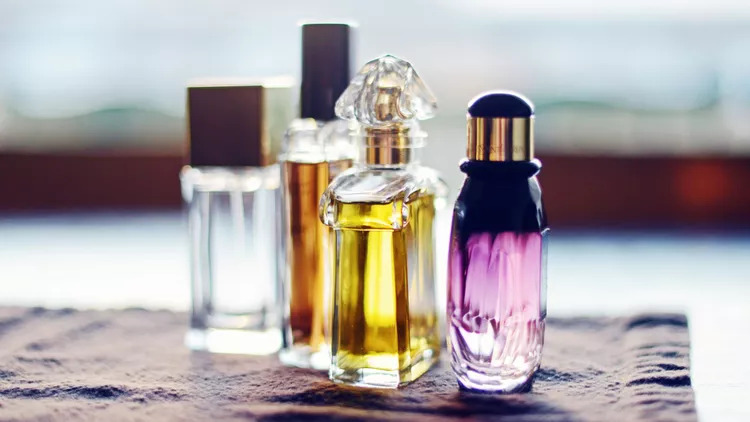Fragrances are probably the most luxurious of the aids that we use for grooming. They put the finishing touch to our grooming. In fact, the market for perfumes is not only vast, but some of them constitute the most expensive among grooming aids.
Nature has also bestowed upon us the most wonderful fragrances. Imagine what a rose or jasmine would be like without their delightful fragrances. In fact, nature’s perfumes are all distinct and different from each other. The fragrance of a rose can be identified even with the eyes closed. Perfumes can be derived from natural sources, like the essences of flowers, citrus fruits, sandalwood and other woody essential oils.
However, most of the perfumes that we buy are synthetic blends. Perfumes that are created are all about “notes” and a delicate balancing of different notes. The “top note” is the first fragrance you get. The “middle note” can be smelt after wearing the perfume for a while, so that it dries on your skin and begins to mix with individual body chemistry. The “base note” is the fragrance that lingers.
The way we store our perfumes has an impact on how long they last. It is said that a dark, cool and dry place would be the best. However, very often, we keep our perfumes on our dressing table, or in the bathroom, so that they are convenient to use. However, the bathroom may be a hot and humid place, especially in summer. Your perfumes should be kept away from direct sunlight, due to exposure to ultra violet rays. Keep them away from humidity too. They are best kept in drawers, away from light. Excessive heat can also break down the chemical bonds in perfumes. Therefore, in hot weather, you can even keep your colognes in your refrigerator. However, concentrated perfumes should not be kept in the fridge or in very hot places, as extremes of temperature can harm the delicate blends.
To select the right perfume, body chemistry is important. That is why it is best to try out the perfume on one’s own skin. The exact fragrance of a perfume is apparent only when it comes in contact with the skin. Climate also plays a part in choosing the right perfume. In hot and humid conditions, go for light and fresh fragrances, rather than heavy ones. In cold and dry weather, a heavier scent can be used. Lemon, rose, lavender or sandalwood are light and refreshing during hot weather. The time of day also matters. Go for light fragrances in the morning and heavier ones for the night.
Colognes and Toilet waters can be used during summer and be added to bath water. You can be generous with the use of colognes, even splashing them on. Colognes and Eau de Toilette constitute mainly of water, or a mixture of alcohol and water, with only 2 to 5 % perfume. They are lighter and the fragrance evaporates, leaving a light lingering fragrance. But, when it comes to perfumes, they should be used sparingly.
Apply just a drop or two of perfume on the pulse points. These are at the temple, the wrists, the crook of your arm (in front of the elbow), beneath the neck, behind the knees.
Apply perfumes before wearing your clothes, as they can linger on clothes and mix with other colognes or perfumes.
If you have an oily skin, colognes are much more suitable.
Avoid using perfumes if you are going to be out in the sun for a long time. Some perfumes may be photosensitizing, leading to a reaction on the skin, like a rash, or blotches.
All about perfumes and their care
- Advertisement -

